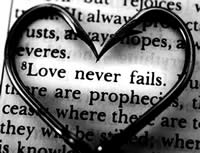Difference between Love and Infatuation
Key Difference: Love is a feeling of warm personal attachment or deep affection, as for a parent, child, or friend. Infatuation is when a person gets so swept up in feelings of what they believe in love that they do not see the rationality of the situation.
include("ad4th.php"); ?>
Humans are fascinated with love. We need love, we crave love, and we’ll do anything for love. There are pages and pages devoted to love throughout history, stories, poems, sonnets, paintings, and so much more. However, sometimes we confuse love with infatuation. These two are completely different things. Read on to find out how.
 According to Dictionary.com, ‘love’ is a profoundly tender, passionate affection for another person. It is a feeling of warm personal attachment or deep affection, as for a parent, child, or friend. It can also be used to describe sexual passion or desire. Love is a strong affection and an emotion of personal attachment. Love is defined as a virtue full of human kindness, compassion, and affection; "the unselfish loyal and benevolent concern for the good of another". While love more often than not is used to denote feelings toward the romantic partner, love, in fact, is more generic than that. See the difference between love and obsession.
According to Dictionary.com, ‘love’ is a profoundly tender, passionate affection for another person. It is a feeling of warm personal attachment or deep affection, as for a parent, child, or friend. It can also be used to describe sexual passion or desire. Love is a strong affection and an emotion of personal attachment. Love is defined as a virtue full of human kindness, compassion, and affection; "the unselfish loyal and benevolent concern for the good of another". While love more often than not is used to denote feelings toward the romantic partner, love, in fact, is more generic than that. See the difference between love and obsession.
Loving someone is a feeling of warm personal attachment or deep affection. It can be used to refer to anyone, any person, or anything. For example, I love you. I love my mom. I love my husband. He loves his girlfriend. I love my dog. They love pizza. She loves vanilla ice-cream. Mary loves the sea. John loves football. Love can be used to refer to a variety of different feelings, states, and attitudes, ranging from pleasure to interpersonal attraction. It may refer to passionate desire, the intimacy of romantic love, sexual love, familial love, platonic love, religious love, and to a concept of love that encompasses all of those feelings.
include("ad4th.php"); ?>
However, when referring to love between two different people, there are in fact two distinct forms of love:
- Platonic love: A deep and non-romantic connection or friendship between two individuals. It is love in which the sexual element does not enter. Platonic love can refer to friends, best friend, siblings, parents, children, etc.
- Romantic love: Considered similar to platonic love, but involves sexual elements. This the type of love referred to when talking about love between two partners, such as a boyfriend-girlfriend, husband-wife, boyfriend – boyfriend, girlfriend – girlfriend, etc.
Love or actually the need to be loved is the driving force between all interpersonal relationships that one forms. Love is a psychological need for all humans. We all want to feel loved. Love is, in fact, a part of our survival instinct. It is a function to keep human beings together so that they may procreate and continue the species. However, this is debatable as to why humans need love, whereas many other species procreate well in the absence of love.

Dictionary.com defines ‘infatuation’ as, “foolish or all-absorbing passion or an instance of this.” It is when a person gets so swept up in feelings of what they believe in love that they do not see the rationality of the situation. Infatuation is often caused by sex appeal such as the way a person looks, or similar interests, etc. Infatuation can also grow into love if given proper time and energy. Infatuation is believed to caused by the increase of adrenalin in the body that causes the person to do irrational things and crave more of it.
See: Difference between flirt and love
It is often associated with destructive things such as obsessive and lust, which are believed to be the foundation of the infatuation. If not properly attended; these can often turn into obsession and lust. They can also cause a person to harm themselves or become suicidal if they feel that they are not getting the attention they require in return. Some people believe that infatuation is another name for attraction, as both are caused by similar things. Infatuation can often confuse a person into believing it is love; however it is not. Infatuation causes a person to become selfish, demanding, and addictive; always requiring that extra rush of adrenalin. But, it is short lived and often passes away soon. Infatuation does not always have to be with a person it can also be with objects or materialistic things.
Robert Brown claims that are three types of infatuation which include, “a state of 'being carried away, without insight or proper evaluative judgment, by blind desire', 'evaluation...may well be sound although the craving or love remains unaffected by it' and 'a third type is that of the agent who exhibits bad judgment and misevaluation for reasons such as ignorance or recklessness.” Infatuation is also considered to be only related to physical attraction such as kissing and sex, which then dies down as the chemistry between the two fades away. It isn’t always easy for a person to distinguish infatuation from love, but if they stand back and think about it rationally, they would see that the difference between the two.
Also see: Difference between true love, crush, and infatuation
Difference between love and infatuation:
|
|
Love |
Infatuation |
|
Definition |
A profoundly tender, passionate affection for another person. |
Foolish or all-absorbing passion or an instance of this: |
|
Associated with |
Selflessness, devoting oneself to another, caring about another, putting others needs in front of you. |
Selfishness, obsession, lust. |
|
Sub-Categories |
Love can be broken down into wanting to settle with the person, not having to constantly worry, happy and content with the intimacy. |
Infatuation is regarded more like a short-lived hormonal activity that causes the adrenalin to shoot up in the system. It is also commonly associated with lust and obsession. |
|
Symptoms |
Faithfulness, confidence, more communicative, selflessness. |
Urgency, intensity, drama. A person requires so sort of hook that gives them adrenalin. |
|
Feels like |
Security, solidity, calmness, down-to-earth feeling. A person is deeply committed to another, putting their needs first. |
The feeling of infatuation is similar to that of drugs, addiction, reckless behavior, obsession, insecurity, fear of losing, etc. |
|
Effect |
Increase in the ability to make a rational decision, especially when considering the other person. |
A decrease in the ability to make rational decisions, a person tends to make more irrational decisions that they may regret later on in life. |
|
Result |
If love tends to survive, the person feels bliss, calmness, security, etc. |
Once the temporary interest and attraction fade, the person is left with empty feelings and sadness. |
|
Interdependency |
The dependency is based on a partnership. |
Must include heavy physical attraction or the infatuation wouldn’t exist. |
|
Time Period |
Long time, commonly lasts a good number of years. Platonic love or selfless love can last for ages. |
Short-timed romance, that fades away quickly with time. A person tends to become bored with things quickly. |
|
Types |
Platonic and romantic. |
According to Brown, the three types include “being carried away, without insight or proper evaluative judgment, by blind desire, evaluation...may well be sound although the craving or love remains unaffected by it and the agent who exhibits bad judgment and misevaluation for reasons such as ignorance or recklessness.” |
Also see: Difference between love and affair
Image Courtesy: inspirationaldaily.wordpress.com, selfcreation.com









Add new comment